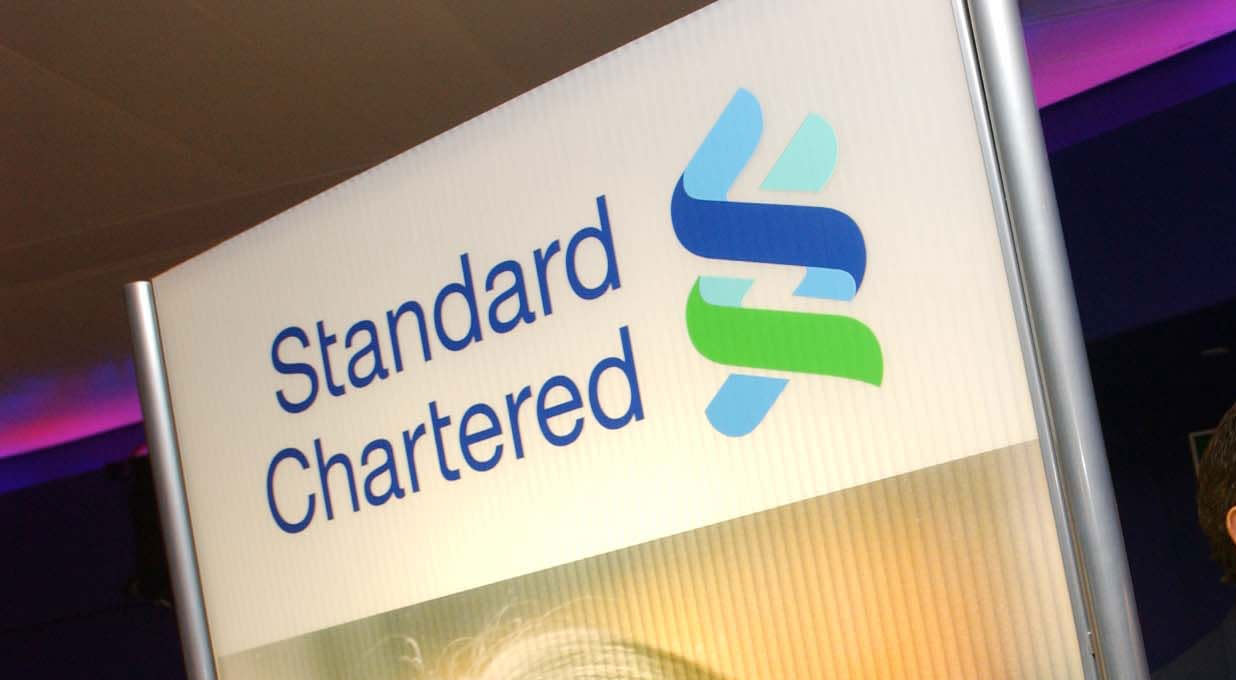Standard Chartered reported first-quarter income of $5.2bn, up 20% when ignoring exchange rates. That included two one-off items totalling $234mn, without which, income was up 14%. Performance was driven by non-interest income, which includes areas like wealth management and investment banking.
Underling profit before tax rose 27% to $2.1bn ($1.9bn excluding one-off items), well ahead of the $1.6bn markets were expecting. Credit impairments of $176mn were up $150mn from last year, but credit quality trends remain resilient.
The group’s CET1 ratio, a key capital measure, was 13.6% over the quarter (target 13-14%). The ongoing $1bn buyback is around two-thirds complete.
The shares rose 6.9% in early trading.
Our view
Standard Chartered’s first-quarter results weren’t far off a clean sweep with pretty much every major line item coming in better than markets had expected. Performance was driven by non-interest income, which accounts for over half of all revenue. This includes areas like wealth management, investment banking, and trading. Traditional banking operations performed more or less as expected.
Medium-term guidance out to 2026 shows promising signs. Volume growth, cost cuts and a benefit from the structural hedge are expected to help deliver a return on tangible equity of 12% in 2026 (2023: 10%). If delivered, and it’s a big if in our view, that should provide a material tailwind to the current valuation.
Standard operates a sprawling business, both geographically and in terms of product ranges. Domestic Chinese exposure, while a small part of the pie has been in focus. As we’ve seen from peers, credit quality metrics remain resilient. This is especially important for Asian-focused banks like Standard and HSBC, which have both had to write down the value of Chinese assets in past quarters. Commercial real estate exposure in China has also been a cause for concern, so investors will be pleased to see no real uptick in impairments taken here over the first quarter.
Performance last year was heavily weighted towards interest income. But it's not UK rates that move the dial. Higher rates in key areas like Hong Kong and Singapore have been providing a tailwind. Rates are expected to come down, but there should be enough of a tailwind from asset growth, hedge income and a benefit from clients switching back to shorter-term deposit accounts.
Income from fees and trading is also vital, and likely to be the side of the business driving growth this year. Standard has spent several years investing in the Financial Markets and Wealth Management divisions to help drive income that’s a little less dependent on interest rates. These divisions are also less capital intensive which gives a little more wiggle room for things like buybacks – though none are ever guaranteed.
There is a path to rerating if new medium-term guidance is taken at face value, and the balance sheet’s in a good place. Management has done a decent job of spelling out the moving parts, but there’s a big difference between plans and reality. We think the sprawling footprint could do with some streamlining and prefer some of the more focused names in the sector.
Environmental, Social and governance (ESG) risk
The financials sector is medium-risk in terms of ESG. Product governance is the largest risk for most companies, especially those in the US and Europe with enhanced regulatory scrutiny. Data privacy and security are also an increasingly important risk for banks and diversified financial firms. Business ethics, ESG integration and labour relations are also worth monitoring.
According to Sustainalytics, Standard Chartered’s management of material ESG issues is strong.
Standard’s strong programs and policies are offset by involvement in multiple controversies, reducing its management score. However, the bank has improved disclosure in areas like data privacy, security, and product governance. It introduced external cybersecurity assessments designed by the Bank of England and Prudential Regulation Authority, and has management in place to ensure responsible product offerings. Improvement areas include lack of transparency in gender pay, high employee turnover, and poor integration of ESG into asset management.
Standard Chartered key facts
All ratios are sourced from Refinitiv, based on previous day’s closing values. Please remember yields are variable and not a reliable indicator of future income. Keep in mind key figures shouldn’t be looked at on their own – it’s important to understand the big picture.
This article is not advice or a recommendation to buy, sell or hold any investment.No view is given on the present or future value or price of any investment, and investors should form their own view on any proposed investment.This article has not been prepared in accordance with legal requirements designed to promote the independence of investment research and is considered a marketing communication.Non - independent research is not subject to FCA rules prohibiting dealing ahead of research, however HL has put controls in place(including dealing restrictions, physical and information barriers) to manage potential conflicts of interest presented by such dealing.Please see our full non - independent research disclosure for more information.


